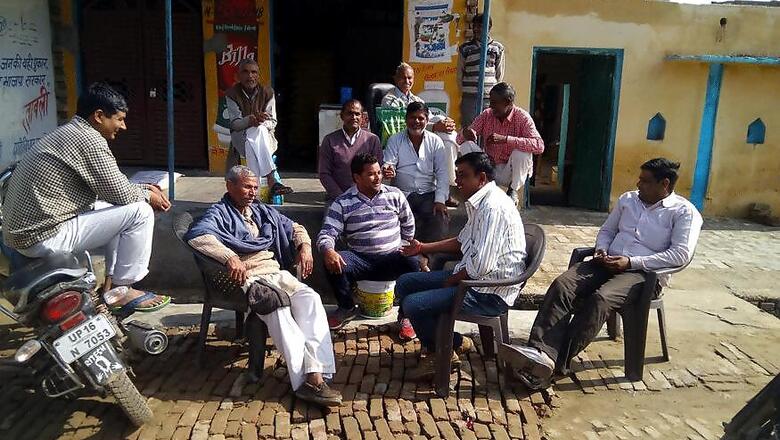
views
Dadri: It was on September 28, 2015, that Mohammed Akhlaq was lynched by a mob on suspicions that he had slaughtered and consumed a cow. The incident shook up the nation. But more than a year later, the handful of Muslims living in Dadri's Bisada village — about 50 households with 100 votes out of a total of 5,600 voters — still feel they're being watched over with mistrust and suspicion.
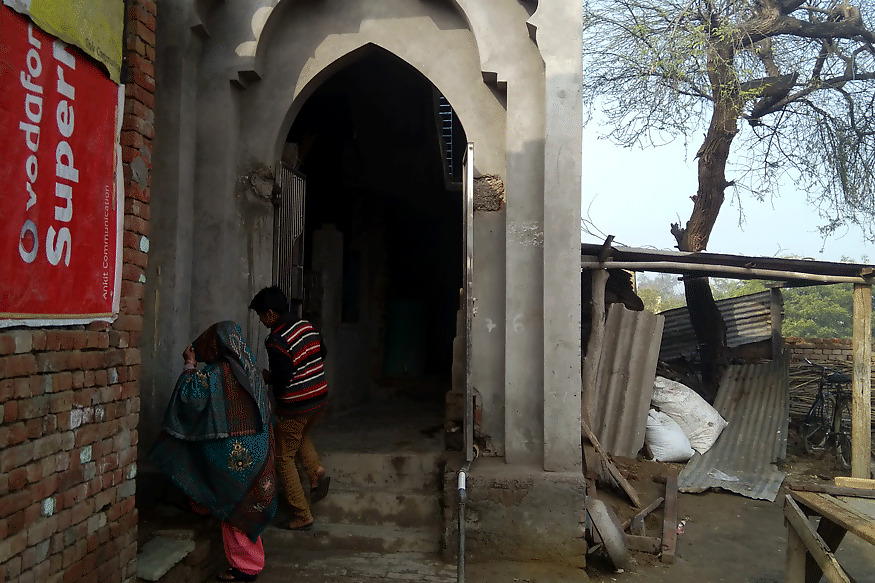
The mosque where no loudspeaker is used after the it was banned in a Bisada temple.
Several Muslims have moved out of the village since the fateful night. But even now, as the village prepares to go to polls on Saturday, Bisada is buzzing as much with political banter as with threats and counter threats.
For those who doubt the political significance of polarisation in western UP, Bisada is a reality check.
BJP candidate from Dadri, Tejpal Nagar, recently held a panchayat in Bisada and was booked for violating the Model of Code of Conduct, for making communally provocative statements.
"Sometimes we're told that once BJP government comes to power, the Hindus can do anything. I hear all this but not without speaking back. When they make such statements I tell them we'll vote Mayawati to power," said Mohammad Shabbir Ahmad, a carpenter.
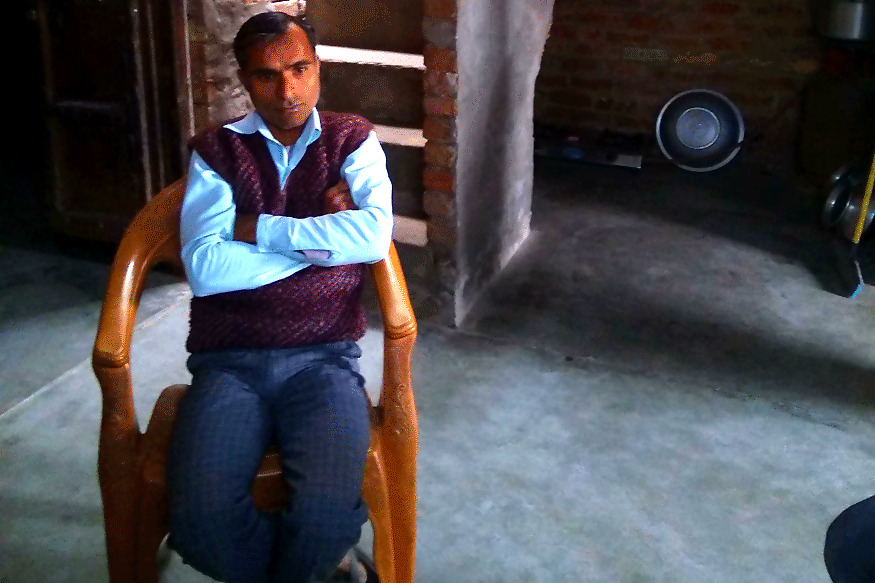
Mohammad Akhter is a carpenter by profession
Sanjeev Rana who was the village Pradhan when the lynching happened says he often assures his Muslim neighbours that nothing will go wrong. “But despite assurance the fear lingers. Their fear is understandable. They’re fewer in number,” he says.
But in the same breath he hints at the violence the "hot Hindu blood" can unleash. "Today the youth is very volatile, their blood boils too soon, we have to control their rage and were able to do it when the tension gripped the village few months back. But now there is no problem... hum sab sukh shanti se rehte hain (we live in peace and harmony). Some of the Muslim families have also returned," he says.
As for the larger politics, there is a palpable anti-Akhilesh sentiment among the dominant Hindu community of the village.
Sanjay Rana, whose sons are accused in the lynching case, said, "No matter which party comes, SP will not return." A sentiment that was echoed by many in the village. The majority Thakur community is supporting BJP’ Nagar, a Gurjar who is likely to get votes of Gurjar community as well.
BSP candidate from Dadri is MLA Satveer Gurjar, who too is a strong candidate.
Former pradhan Sanjeev Rana.
One of the local residents who didn't want to be identified said that immediately after the Akhlaq murder there was some hope the situation would return to normalcy. Driven by this hope against all odds, Mohammad Akhtar, a carpenter, started working on building his new home. Things changed after the 22-year-old accused in Akhlaq murder case, Ravi, succumbed to an ailment in the prison.
Mohammad Akhter's wife. Akhter sold his ancestral home at Bisada at dirt cheap rates.
"That's when tension returned to Bisada and we Muslims realized that life had changed here forever," said Akhtar. He sold his property for Rs 5 lakhs when its real worth he said is Rs 7 lakhs or more. His mother Zareena claims that her two other sons sold their house for Rs 4 lakh. A house that Zareena claims could easily have fetched them Rs 8-10 lakh.
"There are others accused too in the case, what if something happens to them and we are blamed for that? Who will control the crowd? There are individual assurances but crowd frenzy cannot be controlled," said a visitor at Vakeela's home.
Vakeela is seen with a visitor at his residence. Vakeela is the only Muslim person who is residing in Bisada where Mohammed Akhlaq was killed.
Vakeela is the sole Muslim family in the locality where Akhlaq was killed. She is not ready to leave, but says "if I get someone to buy my property I will not think twice.
On the other hand Asghari who has just become a grandmother is fearful but not prepared to leave: "Death has to come anyway, so I am not running away from it. There are people who want my house, they are waiting for me to flee in fear and leave it behind for them. This cannot happen," she said. She added that there is a distinct feeling of mistrust now. "Every time we stand out of the house or if some people come at my place, the other villagers start questioning if we are conspiring against them," she says.
As this reporter prepared to leave the village, a visitor to Akhtar's house asked, "Can media do anything to cement the ties between the two communities? Can the old days return? Maybe trust can return..."
Maybe the next chief minister of UP will have an answer.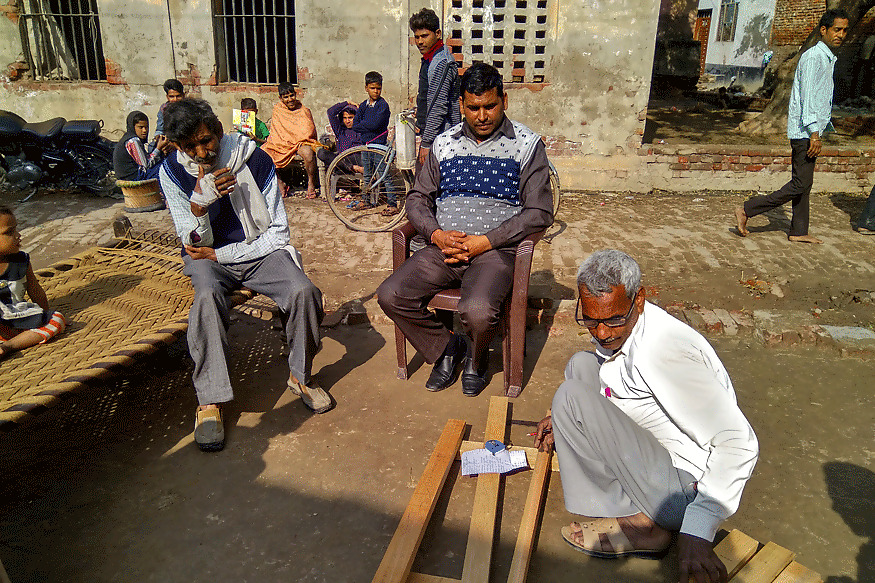
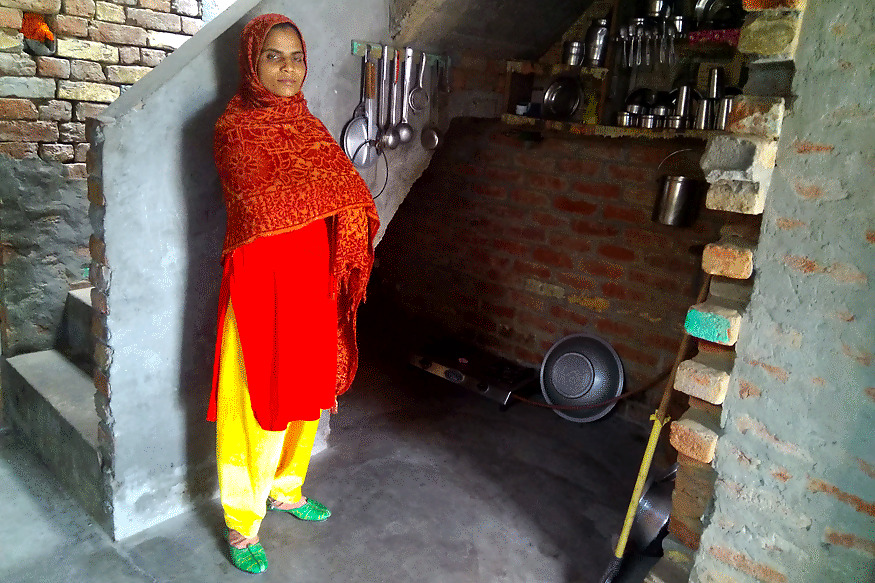
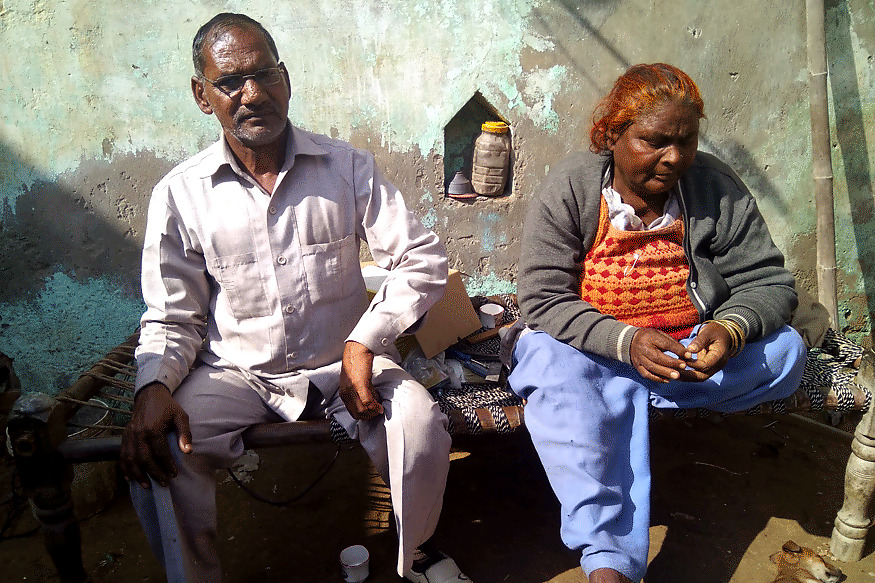



















Comments
0 comment